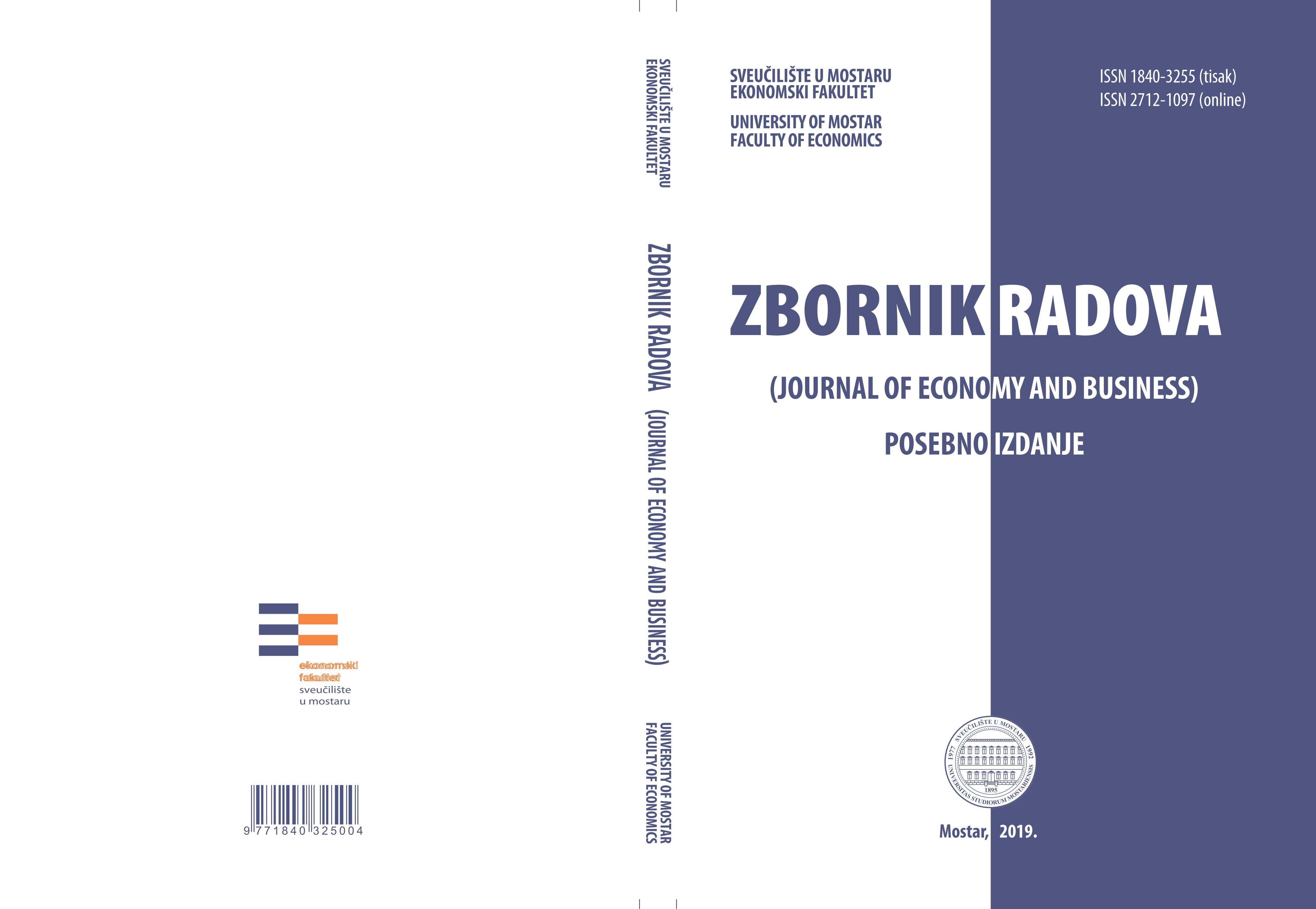UTJECAJ REGULATORNOG OKVIRA ZNANSTVENO-NASTAVNOGA DJELOVANJA VISOKOŠKOLSKIH DJELATNIKA NA KVALITETU RAČUNOVODSTVENE PROFESIJE
IMPACT OF THE REGULATORY FRAMEWORK OF SCIENTIFIC-TEACHING ACTIVITIES OF HIGHER EDUCATION EMPLOYEES ON THE QUALITY OF ACCOUNTING PROFESSION
Author(s): Katarina Žager, Nikolina Dečman, Ana RepSubject(s): Economy, Vocational Education, Accounting - Business Administration
Published by: Ekonomski fakultet, Sveučilište u Mostaru
Keywords: education; regulatory framework; scientific-teaching activity; promotion criteria; accounting profession;
Summary/Abstract: Knowledge is the most valuable resource acquired through education and experience. Although there are many types and therefore definitions of knowledge, it can be said that it involves a theoretical and practical understanding of a particular issue. Scientifically based attitudes form the basis for development of theory, which is then confirmed and further developed in practice. Professional knowledge is primarily acquired in the formal education system and upgraded with continuous training in business practice. It can be said that the education system is the first step in a development of professional competencies of experts in any field, including the field of accounting. A high-quality specialist in accounting requires, above all, a high-quality background in terms of knowledge and skills necessary to understand business processes, as well as the wider field of accounting and auditing that is acquired primarily in higher education institutions. The quality of work of an educational institution, as well as the learning outcomes that students acquire in certain studies, is determined by the quality of study programs and, in particular, by the quality of teaching staff. Considering the fact that one of the most important prerequisites for quality education of future accountants is quality of higher education teachers, it is important to consider what are the conditions and criteria that encourage excellence in teaching and transferring professional knowledge to future generations of professional accountants. In this regard, the paper has explored and analysed the criteria of excellence of teachers who teach economics in the fields of continuous learning, teaching and participation in scientific research. In the existing education system of the Republic of Croatia, the quality of work of higher education teachers is measured by the criteria for selection to the scientific-teaching titles, which, on the one hand, evaluate scientific work and, on the other, particularly evaluate teaching and professional activity of teachers and their institutional contribution. In order to find out whether the mentioned criteria for teacher advancement meet the criteria of excellence of scientific research and teaching activities of higher education teachers of the countries in the region, a comparative analysis of the regulatory framework of the scientific-teaching activity of teachers in the field of social sciences - the field of economics has been conducted. Equally important is the knowledge of how much is invested in science and / or scientific research activities of teachers, since this is the only way to provide the necessary preconditions for the implementation of research projects that lead to new insights that are then transmitted and applied in business practice. Finally, it is important to emphasize that the role of higher education teachers in society is changing and, in addition to excellence in teaching and transferring expertise to future generations of professional accountants, they are increasingly expected to strongly contribute to the development and advancement of the entire community.
Journal: Zbornik radova
- Issue Year: 2019
- Issue No: Special
- Page Range: 175-199
- Page Count: 25
- Language: Croatian

